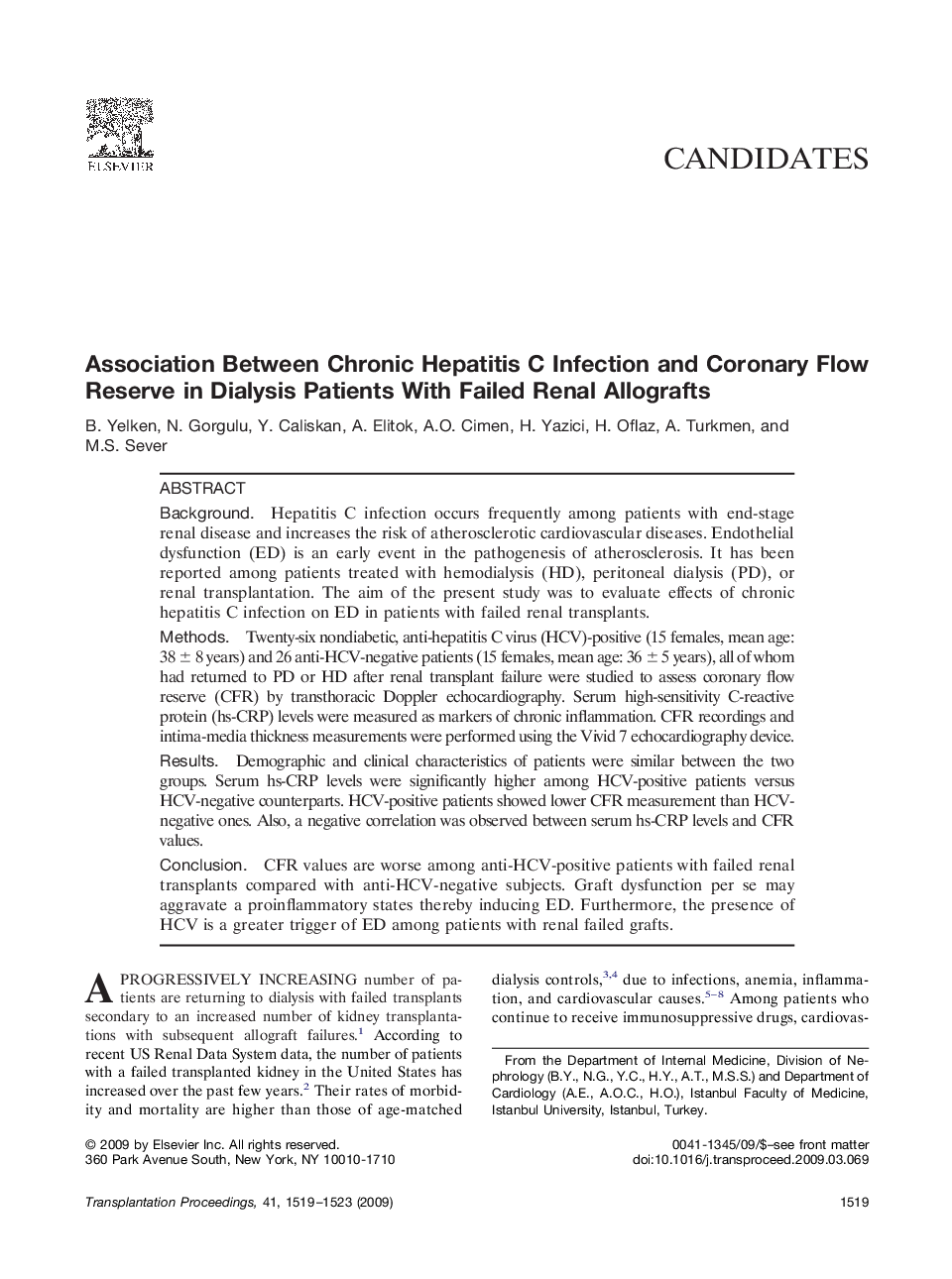| Article ID | Journal | Published Year | Pages | File Type |
|---|---|---|---|---|
| 4259227 | Transplantation Proceedings | 2009 | 5 Pages |
BackgroundHepatitis C infection occurs frequently among patients with end-stage renal disease and increases the risk of atherosclerotic cardiovascular diseases. Endothelial dysfunction (ED) is an early event in the pathogenesis of atherosclerosis. It has been reported among patients treated with hemodialysis (HD), peritoneal dialysis (PD), or renal transplantation. The aim of the present study was to evaluate effects of chronic hepatitis C infection on ED in patients with failed renal transplants.MethodsTwenty-six nondiabetic, anti-hepatitis C virus (HCV)-positive (15 females, mean age: 38 ± 8 years) and 26 anti-HCV-negative patients (15 females, mean age: 36 ± 5 years), all of whom had returned to PD or HD after renal transplant failure were studied to assess coronary flow reserve (CFR) by transthoracic Doppler echocardiography. Serum high-sensitivity C-reactive protein (hs-CRP) levels were measured as markers of chronic inflammation. CFR recordings and intima-media thickness measurements were performed using the Vivid 7 echocardiography device.ResultsDemographic and clinical characteristics of patients were similar between the two groups. Serum hs-CRP levels were significantly higher among HCV-positive patients versus HCV-negative counterparts. HCV-positive patients showed lower CFR measurement than HCV-negative ones. Also, a negative correlation was observed between serum hs-CRP levels and CFR values.ConclusionCFR values are worse among anti-HCV-positive patients with failed renal transplants compared with anti-HCV-negative subjects. Graft dysfunction per se may aggravate a proinflammatory states thereby inducing ED. Furthermore, the presence of HCV is a greater trigger of ED among patients with renal failed grafts.
